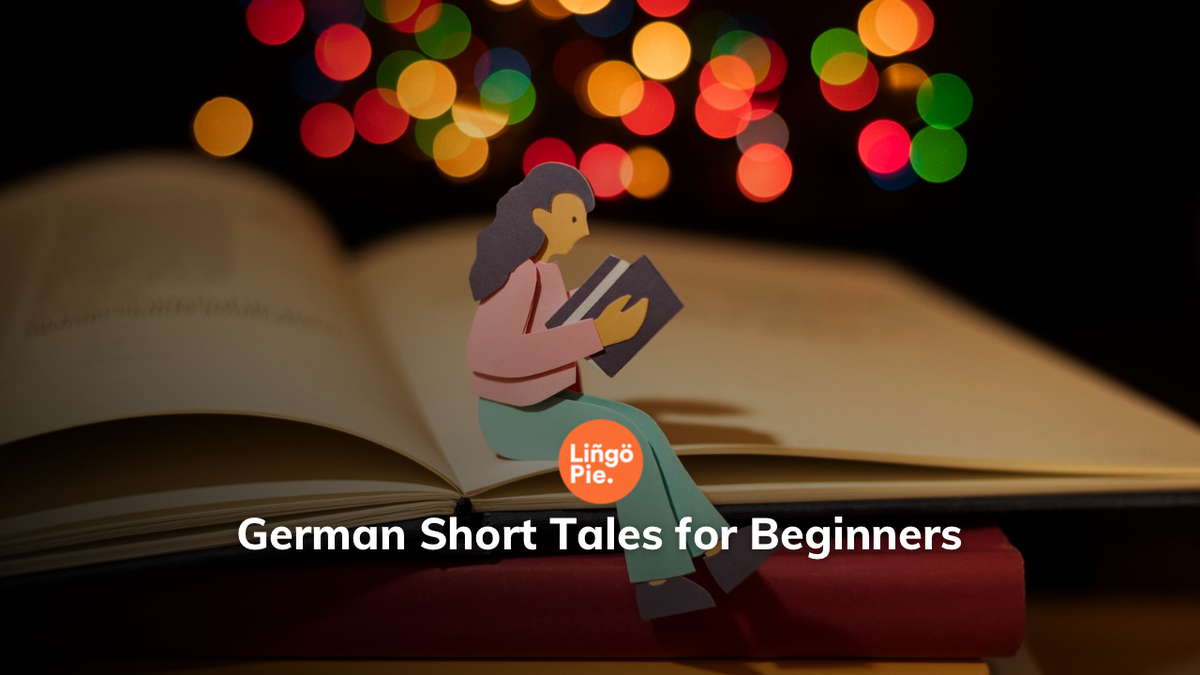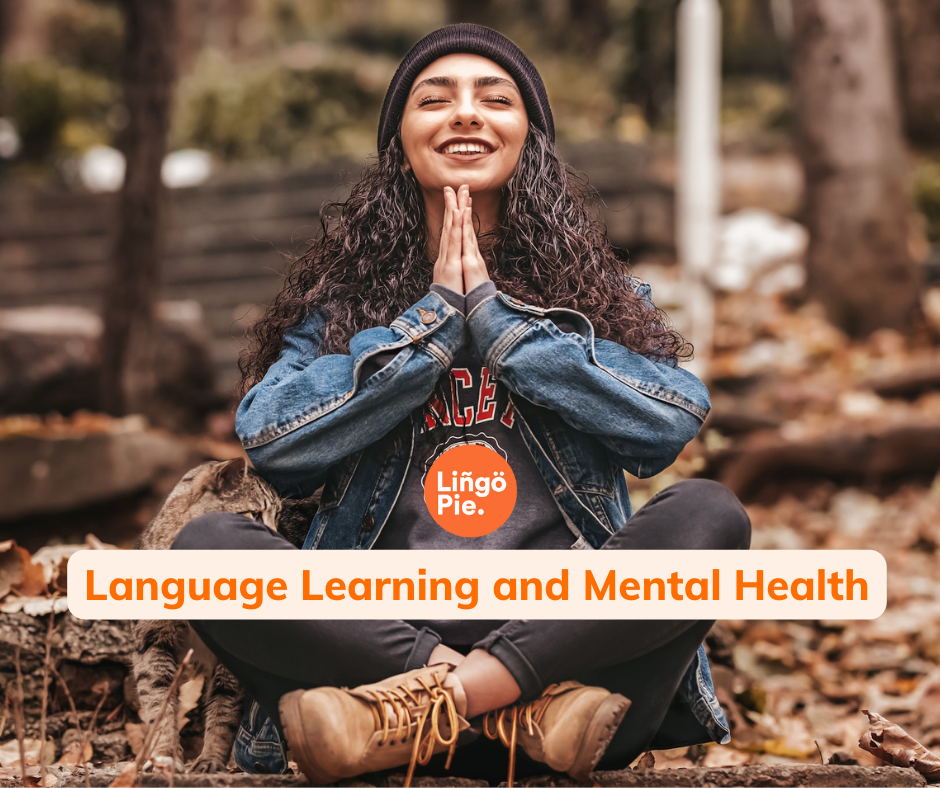Learning a new language can be an exciting and rewarding journey, and finding engaging and effective learning resources is key to success. One enjoyable and effective way to learn German is through storytelling. By immersing yourself in short tales specifically designed for beginners, you can enhance your language skills while being captivated by the magic of storytelling. In this article, we will explore how learning German through storytelling can be a fun and effective method for beginners, and we'll provide a curated list of short tales to help you on your language learning adventure.

Table of Contents:
- The Power of Storytelling in Language Learning
- Short Tales for Beginner German Learners
- How to Maximize Your Learning Experience
- Resources and Tools for Learning German Through Storytelling
- About Lingopie
- Additional Tips for Language Learning Success
- Summing up
The Power of Storytelling in Language Learning:
Storytelling offers numerous benefits for language acquisition. When it comes to learning a new language, incorporating stories into your language journey can be incredibly effective. Stories have a unique way of engaging your imagination and aiding memory retention. As you dive into narratives, your mind becomes captivated, creating vivid mental images that help you remember new vocabulary and grammatical structures. Moreover, storytelling allows you to connect emotions to language. Through the power of narratives, you can experience a range of emotions, from joy to sadness, which deepens your understanding of cultural nuances and enhances your ability to express yourself authentically. By immersing yourself in stories, you not only improve your linguistic skills but also develop a deeper appreciation for the language and its cultural context. So, embrace the world of storytelling as a language learner, and unlock the endless possibilities it holds for your language acquisition journey.
Short Tales for Beginner German Learners
Hansel und Gretel (Hansel and Gretel)

This famous fairy tale tells the story of Hansel and Gretel, two siblings who live with their father and stepmother. Due to a famine, the stepmother convinces their father to abandon the children in the forest, hoping they won't find their way back. However, Hansel leaves a trail of breadcrumbs to help them find their way home. Unfortunately, birds eat the breadcrumbs, and they become lost. They stumble upon a gingerbread house, which belongs to a wicked witch. The witch captures Hansel and plans to eat him. However, Gretel cleverly tricks the witch and pushes her into the oven, saving her brother and themselves. They return home with jewels from the witch's house and live happily ever after.
Rotkäppchen (Little Red Riding Hood)

This classic tale follows a young girl named Little Red Riding Hood. One day, her mother sends her to visit her sick grandmother. On her way, she encounters a cunning wolf who tricks her by taking a shortcut to reach her grandmother's house first. The wolf arrives at the grandmother's house, eats her, and disguises himself in her nightgown. When Little Red Riding Hood arrives, she notices that her grandmother looks strange but doesn't realize it's the wolf. In some versions, a woodcutter comes to the rescue and saves them, while in others, Little Red Riding Hood outsmarts the wolf and escapes. The tale serves as a cautionary story about trusting strangers.
Der Froschkönig (The Frog Prince)

In this story, a princess accidentally drops her golden ball into a well. A frog offers to retrieve it for her, but in return, he asks to become her companion. Reluctantly, she agrees. However, when the frog retrieves the ball, the princess tries to escape without fulfilling her promise. The frog follows her to the castle, where the princess's reluctance turns into kindness. She kisses the frog, breaking a spell that had turned him into a prince. The prince thanks the princess for her act of compassion, and they live happily ever after.
Schneewittchen (Snow White)

Snow White, a young princess with fair skin, black hair, and lips as red as blood, is treated cruelly by her jealous stepmother, the Evil Queen. The Queen orders a huntsman to kill Snow White, but he cannot bring himself to do it and tells her to flee into the forest. Snow White finds a small cottage inhabited by seven dwarfs and becomes their housekeeper. The Evil Queen discovers that Snow White is still alive and tries to kill her multiple times, using disguises such as a corset, a poisoned comb, and finally a poisoned apple. The dwarfs rescue Snow White each time, except when she bites the poisoned apple. Eventually, a prince finds her and breaks the spell with a true love's kiss, awakening Snow White from her eternal slumber. They marry, and the Evil Queen meets her deserved fate.
Rumpelstilzchens (Rumpelstiltskin)

This tale revolves around a miller's daughter who is forced by the king to spin straw into gold. A strange little man named Rumpelstiltskin appears and offers to help her in exchange for something precious. The miller's daughter promises him her first-born child. Rumpelstiltskin successfully spins the straw into gold three times, and the king marries the miller's daughter. When she gives birth to a baby, Rumpelstiltskin returns to claim the child
How to Maximize Your Learning Experience
Effective reading skills are essential for learning any language, and there are a variety of strategies and techniques that can be used to improve these skills. Pre-reading activities such as vocabulary building exercises and comprehension exercises can help learners better understand the text and improve their overall reading skills. Reading techniques and strategies for beginners, such as skimming, scanning, and predicting, can help learners comprehend the text more efficiently.
Post-reading exercises such as summarizing and answering questions can help reinforce language learning and improve retention of new vocabulary and grammar. Finally, interactive discussions and language practice with fellow learners can provide an opportunity to practice speaking and writing skills and receive feedback from
Resources and Tools for Learning German Through Storytelling
There are a variety of resources available for those interested in learning German through short stories and interactive storytelling. Online platforms and websites such as Lingoda and GermanPod101 offer a range of beginner-level German short stories, which can help learners develop their reading comprehension and vocabulary.
Additionally, there are a number of mobile apps and language learning tools, such as Lingopie, that incorporate interactive storytelling into their language lessons. These tools can be particularly useful for learners who prefer a more immersive and engaging language learning experience.
Finally, language exchange communities and forums such as Lingopie Community, Tandem and HelloTalk provide opportunities for learners to practice their German language skills with native speakers and other learners. These communities can be a valuable resource for learners looking to improve their conversational skills and engage in discussions about German language and culture.
Liking this post? Then check out these anazing articles:


About Lingopie

Are you ready to learn German in a whole new way? Say hello to Lingopie, your ultimate gateway to mastering the German language through the magic of movies. With Lingopie, language learning becomes an immersive and exciting experience that transports you directly into the heart of German culture.
Imagine learning German by watching captivating movies—immersing yourself in authentic dialogue, absorbing natural accents, and experiencing the richness of the German language. Lingopie offers a vast selection of German films, carefully curated to provide a diverse range of genres and themes. From gripping dramas to hilarious comedies, there's something for everyone.
But Lingopie is more than just a movie streaming platform. It's a comprehensive language learning tool that takes your German skills to the next level. With interactive features like flashcards and quizzes, you can reinforce vocabulary, grammar, improve comprehension, and enhance your speaking skills. Lingopie's personalized learning recommendations ensure that you're always on the right track, guiding you towards content that matches your interests and proficiency level.
Whether you're a beginner or an advanced learner, Lingopie is here to transform your language learning journey. Explore the world of German cinema, immerse yourself in captivating stories, and watch your language skills flourish. With Lingopie, you'll sharpen your listening, speaking, and comprehension skills while indulging in the joy of movie entertainment.
Ready to embark on this exciting German language adventure? Start your 7-day Free Trial with Lingopie today and experience the thrill of learning German through movies. Unleash your inner cinephile and embark on a linguistic journey like never before.
Don't miss out on this unique opportunity. Join Lingopie now and let the magic of German cinema ignite your language learning passion!
Additional Tips for Language Learning Success
To make the most of your language learning journey, it's essential to adopt effective strategies and mindset. First and foremost, creating a dedicated study routine and setting realistic goals will provide structure and direction to your progress. Consistency is key, so carve out specific time slots each day or week for focused learning. Additionally, utilizing supplementary resources like audio recordings or translations can greatly enhance your understanding and pronunciation skills. These tools can provide valuable context and support, enabling you to grasp the language more comprehensively. Equally important is embracing a growth mindset, where you view challenges as opportunities for improvement. Celebrate each small achievement along the way, as they contribute to your overall progress and motivate you to continue learning. By combining a dedicated study routine, supplementary resources, and a growth mindset, you'll unlock your full potential and make remarkable strides in your language learning journey.

Summing up:
Learning German through storytelling can transform your language learning experience into a captivating adventure. By immersing yourself in short tales designed for beginners, you can improve your language skills, expand your vocabulary, and develop a deeper understanding of the German language and culture. Remember to choose stories that align with your interests and language proficiency level, and don't forget to incorporate interactive activities and practice to make the most of your learning journey. So, embark on this language learning adventure and let the power of storytelling guide you to German fluency. Viel Spaß beim Deutschlernen! (Enjoy learning German!)










